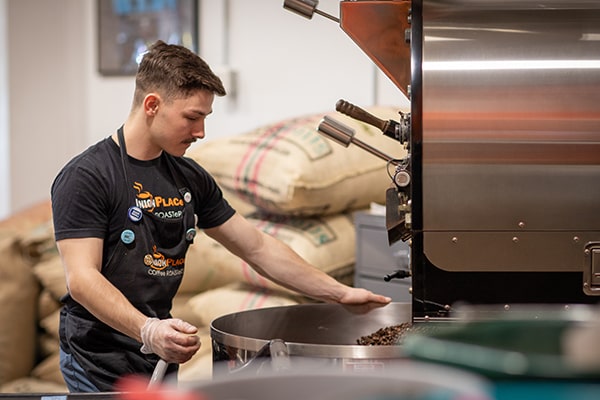In recent years, the coffee industry has undergone a significant transformation, leading to the emergence of what we now know as specialty coffee. This concept has not only changed how we perceive coffee but also how it is produced, sourced, and consumed. In this blog post, we will explore the definition of specialty coffee, its origins, the factors that contribute to its quality, and why it matters in today’s coffee culture.
Defining Specialty Coffee
Specialty coffee refers to high-quality coffee that is graded 80 points or above on a 100-point scale by certified tasters known as Q graders. This grading system was established by the Specialty Coffee Association (SCA) to ensure that consumers can identify and enjoy superior coffees. The term “specialty” signifies more than just quality; it encompasses a commitment to excellence throughout every stage of the coffee production process—from cultivation and harvesting to roasting and brewing.
The Origins of Specialty Coffee
The specialty coffee movement began in the late 20th century as a response to mass-produced coffees that dominated the market. Pioneers like Alfred Peet in the 1970s laid the groundwork for what would become a global phenomenon. Peet’s focus on sourcing high-quality beans from specific regions marked a shift away from generic blends toward single-origin coffees that highlight unique flavors and characteristics.
As consumers became more educated about their choices, they began seeking out distinct flavors and artisanal methods of preparation. This growing interest led to an explosion of specialty coffee shops worldwide, where baristas take pride in crafting each cup with precision and care.
Factors Contributing to Quality
Several key factors contribute to what makes specialty coffee stand out from regular commercial brews:
- Origin
The origin of coffee beans plays a crucial role in determining their flavor profile. Different regions produce beans with distinct characteristics due to variations in climate, soil composition, altitude, and farming practices. For example:
- Ethiopian coffees are often fruity and floral.
- Colombian coffees tend to be well-balanced with nutty undertones.
- Sumatra coffees are known for their earthy flavors.
At Union Place Coffee Roasters, we roast single-origin coffees (https://unionplacecoffeeroasters.com/single-origin-coffee/) in small batches that showcase these unique attributes.
- Processing Methods
How coffee beans are processed after harvesting significantly impacts their flavor. There are several methods used:
- Washed (or wet) processing: Beans are fermented in water before being dried, resulting in cleaner flavors.
- Natural (or dry) processing: Beans are dried with their cherry intact, imparting fruity notes.
- Honey processing: A hybrid method where some mucilage is left on during drying for added sweetness.
Each method influences acidity levels, sweetness, and overall taste complexity—key elements appreciated by specialty coffee enthusiasts.
- Roasting Techniques
Roasting is an art form that requires skill and precision. At Union Place Coffee Roasters, we pay close attention to time and temperature during roasting to bring out specific flavor notes without burning or over-roasting the beans. Light roasts may highlight acidity and fruity notes while darker roasts can emphasize chocolatey or smoky flavors.
- Brewing Methods
The way you brew your specialty coffee can also affect its taste profile significantly. Various brewing methods—such as pour-over, French press, or espresso—can extract different flavors from the same bean due to variations in water temperature and extraction time.
The Importance of Sustainability
Sustainability is another critical aspect of the specialty coffee concept. At Union Place Coffee Roasters, we prioritize ethical sourcing practices by ensuring fair wages for farmers through direct trade relationships or certifications like Fair Trade or Rainforest Alliance. Our commitment not only supports local economies, but also promotes environmentally friendly farming practices that protect biodiversity.
Why Specialty Coffee Matters
The rise of specialty coffee has elevated our collective appreciation for this beloved beverage beyond mere caffeine consumption into an experience worth savoring. Here’s why it matters:
- Quality Over Quantity: Specialty coffee emphasizes quality over mass production—encouraging consumers to appreciate each cup’s unique attributes rather than consuming large quantities mindlessly.
- Cultural Connection: Each cup tells a story about its origin—from farmer practices down through roasting techniques—creating connections between consumers and producers across continents.
- Community Building: Union Place Coffee Roasters is a local coffee shop specializing in high-quality brews and fostering community engagement with our cozy inviting space, local artist showcases, and participation in events at the Genesee Valley Regional Market in Rochester, NY.
- Innovation & Creativity: The emphasis on quality encourages innovation within both farming techniques (e.g., new varietals) as well as preparation methods.
Understanding the specialty coffee concept opens up a world filled with rich flavors, cultural significance, sustainability efforts—and most importantly—a deeper appreciation for one of our favorite beverages! Whether you’re sipping on a Union Place Coffee Roasters Ethiopian Yirgacheffe brewed via pour-over or enjoying a Colombian espresso shot at our local coffee shop—the next time you indulge yourself remember there’s so much more behind every cup than just caffeine!


Customer Reviews